As the pallor of yesterday’s dusk descended, a hush fell over Europe. Jean Haudry, a man of letters steeped in the study of antiquated tongues and their attendant cultures, had completed his mortal pilgrimage and entered the festive halls of Valhalla. With his departure, we stand at the precipice of introspection, peering into the echoing abyss of a legacy left behind. This eminent figure, a monument to undying faithfulness, scholarly acumen, and a curious fusion of investigative thoroughness and partisan viewpoints, invites our solemn meditation.
Haudry’s journey began on May 28, 1934 – a breezy day illuminated by an unusually radiant sun – in the industrious town of Saint-Étienne, nestled in France’s vibrant heartland. The winds of fate had decreed that his path would meander through academic rigors and political intricacies, creating a life story as layered and complex as the ancient civilizations he dedicated his existence to understand.
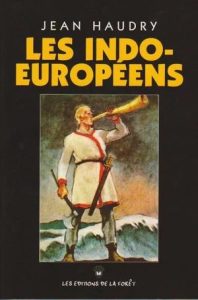 From an early age, Haudry was drawn to the distant memories of forgotten languages. He delved into the study of the Indo-European languages, the ghostly remnants of once thriving civilizations. Sanskrit, the sacred linguistic gem of the East; Ancient Greek, the dialect of renowned philosophers; and Latin, the commanding tongue of the mighty Roman Empire – all found a devoted scholar in Haudry.
From an early age, Haudry was drawn to the distant memories of forgotten languages. He delved into the study of the Indo-European languages, the ghostly remnants of once thriving civilizations. Sanskrit, the sacred linguistic gem of the East; Ancient Greek, the dialect of renowned philosophers; and Latin, the commanding tongue of the mighty Roman Empire – all found a devoted scholar in Haudry.
The inexorable march of time led him to the esteemed halls of the University of Lyon III. Here, he wove a narrative of linguistic enlightenment for those fortunate enough to learn under his guidance. His writings on Indo-European civilizations – profound explorations of language, mythology, culture, and religion – added a wealth of understanding to the field. His distinguished roles as the Dean of the Faculty of Letters and the Director of the Institute of Indo-European Studies at the university further reinforced his position as an intellectual force to reckon with.
In the realm of scholarly discussion, Jean Haudry staked a bold claim, suggesting that the roots of the Indo-Europeans lie in the chill of a circumpolar geography. Similar to Bal Gangadhar Tilak’s assertion of an Arctic cradle, Haudry systematically removes the Mediterranean regions from the pantheon of potential origins for the Indo-European culture. His line of argument hinges upon the conspicuous omission of the area’s distinct vegetation from the Indo-European lexicon. His theory stretches even to the furthermost reaches of the north, encapsulating lands such as Scandinavia and northern Russia, using the glaring absence of beech trees in the Indo-European vocabulary as a cornerstone to bolster his claim.
 Haudry’s thesis, echoing the rhythmic beats of its primordial cosmogony, is distilled primarily from a comparative analysis of Indian and Greek data. This approach resonates with Tilak’s methodology, who dared to interpret the Vedas as holding coded messages pointing to the Arctic as the ancient Aryans’ birthplace. Despite their unique approaches, both scholars traverse an unconventional path, proposing polar regions as the genesis of this ancient folk. As they dance to the symphony of Indo-European origins, their distinctive tunes harmonize, each adding his own sonorous notes to the grand orchestration of our understanding of this primordial society.
Haudry’s thesis, echoing the rhythmic beats of its primordial cosmogony, is distilled primarily from a comparative analysis of Indian and Greek data. This approach resonates with Tilak’s methodology, who dared to interpret the Vedas as holding coded messages pointing to the Arctic as the ancient Aryans’ birthplace. Despite their unique approaches, both scholars traverse an unconventional path, proposing polar regions as the genesis of this ancient folk. As they dance to the symphony of Indo-European origins, their distinctive tunes harmonize, each adding his own sonorous notes to the grand orchestration of our understanding of this primordial society.
A captivating facet of Haudry’s life was his association with the French New Right. This innovative political movement, recognized for its unique interpretations of conservative ideologies, found a sympathetic and intellectual partner in Haudry. To many, this alliance was a testament to the power of intellectual honesty, a merging of academic brilliance and groundbreaking political thought.
The French New Right found a resonant frequency in the heart of Jean Haudry. Its manifesto, steeped in the preservation of ethnic heterogeneity, vibrated in harmony with the chords of Haudry’s sentiments. He, too, was consumed by a profound concern over the swift and ruthless erasure of distinct ethnic identities in the face of the all-devouring monster known as globalization. Haudry’s scholarly pursuits, particularly his forays into Indo-European studies, were intrinsically rooted in a deep-seated longing to keep the cultural fabric of the world intact. The vibrant threads of language and tradition, painstakingly woven by civilizations of the past, were in danger of being unraveled and replaced by a drab uniformity.
The ethos of the New Right, that staunch advocate for the protection of cultural multiplicity, found a seamless alignment with Haudry’s academic convictions. In its metapolitical construction, he perceived a reflection of his own scholarly fervor – a shared, burning desire to shield mankind’s rich heritage from being swept away by the tidal wave of homogenization.
Indeed, Haudry saw in the New Right not an antithesis but a confluence of ideals, a vision of preserving the myriad linguistic and cultural jewels that adorn the crown of human history. For him, this political alignment was not a compromise but rather an affirmation of his deep-seated passion for safeguarding the colorful mosaic of human culture. The New Right provided a platform that mirrored his academic mission, thus intertwining the realms of politics and scholarship in a dance as intricate as it was profound.
Haudry’s connection with the esteemed institution known as GRECE, the French acronym for the Research and Study Group for European Civilization, added another layer of depth to his complex relationship with the New Right. GRECE, a think tank of considerable influence, is an integral pillar of the New Right, providing intellectual substance and direction to the movement’s ideology. Haudry’s association with GRECE was not a mere footnote in his academic journey but rather a significant chapter, illustrating his willingness to engage with political structures that shared his ideals of prolonging the glory of the Occident. His association with GRECE amplified his scholarly pursuits within a politically potent environment, creating a unique and dynamic interface between academia and the realm of political ideology. In many ways, this reaffirmed the synchronicity of Haudry’s intellectual pursuits with the ideological underpinnings of the New Right.
Although detractors questioned his political affiliations, it was evident to many that Haudry’s association with the New Right was an integral part of his multidimensional identity. It was a testament to his drive to protect the whispers of the past from being drowned out by the cacophony of modern homogeneity. It was a reflection of his belief that academia and governance could and should intersect, resulting in a richer and more nuanced discourse than the echo chambers that our contemporary institutes of higher learning have morphed into.
In the grand reckoning of existence, the story of Haudry’s life stands as an enduring monument to the might of intellectual tenacity and unyielding dedication. Like a stalwart ship against the howling tempest of criticism, he held fast to his beliefs, his alliance with the New Right serving as a sturdy anchor amidst the turbulent seas of public opinion. This association, though a subject of contentious debate to some, was far from an emblem of controversy for Haudry. On the contrary, it served as a beacon, illuminating his courage to venture into the unchartered territories of knowledge, guided by the compass of his convictions.
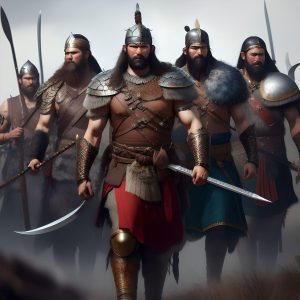 His affiliation with the New Right did not merely signal a political leaning but revealed a broader philosophical stance – a commitment to maintaining the foundations of Western civilization, as he had done with his meticulous study of archaic communities. It was indicative of his readiness to navigate the unconventional labyrinth of ideas in his relentless quest for wisdom.
His affiliation with the New Right did not merely signal a political leaning but revealed a broader philosophical stance – a commitment to maintaining the foundations of Western civilization, as he had done with his meticulous study of archaic communities. It was indicative of his readiness to navigate the unconventional labyrinth of ideas in his relentless quest for wisdom.
Therefore, as we arrive at the closing scene of this biographical tale, we must emphasize that Haudry’s life does not emanate the empty clamor of dispute. Rather, it vibrates with the harmonious melody of enduring faith and ceaseless dedication. This man’s existence, etched by intellectual valor, unfurls the saga of one who ventured into the untouched realms of both academic inquiry and the turbulent arena of public parley.
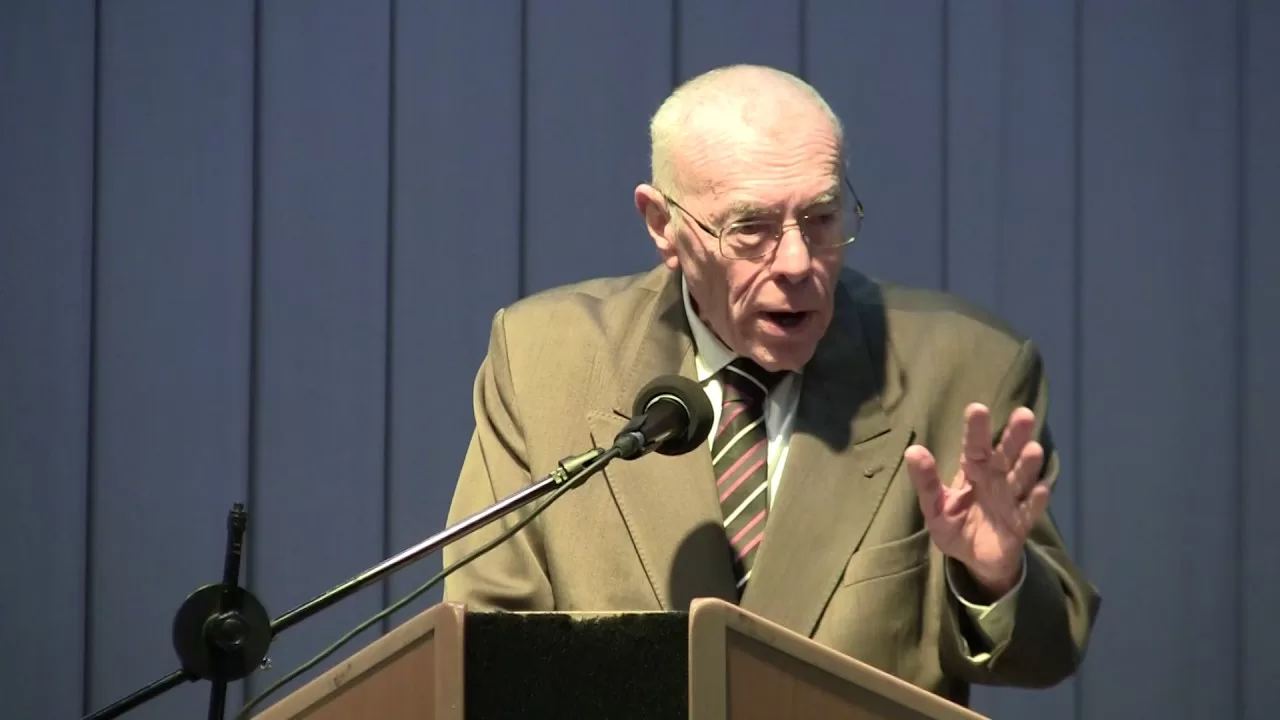


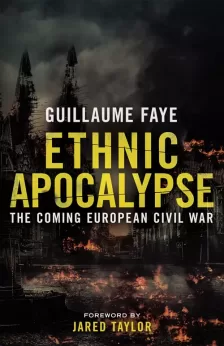
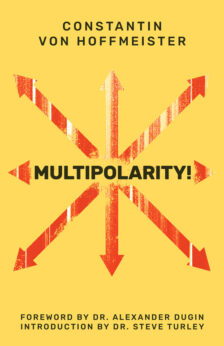



What a fascinating man. I need a copy of his Les Indo-Européens.
Did he and Faye know each other or collaborate?
The Arctic Home in the Vedas is mandatory. I believe Arktos has published an edition?
It would be great to see something on Tilak here!
I just ordered, thanks for the recommendation!
My favorite article of the week. Completely fascinating!
A book from Constantin, when?
Yes, this is great! GRECE seemed to have a real intellectual foundation. It is probably impossible to see this again, until the universities are de-WOKED.